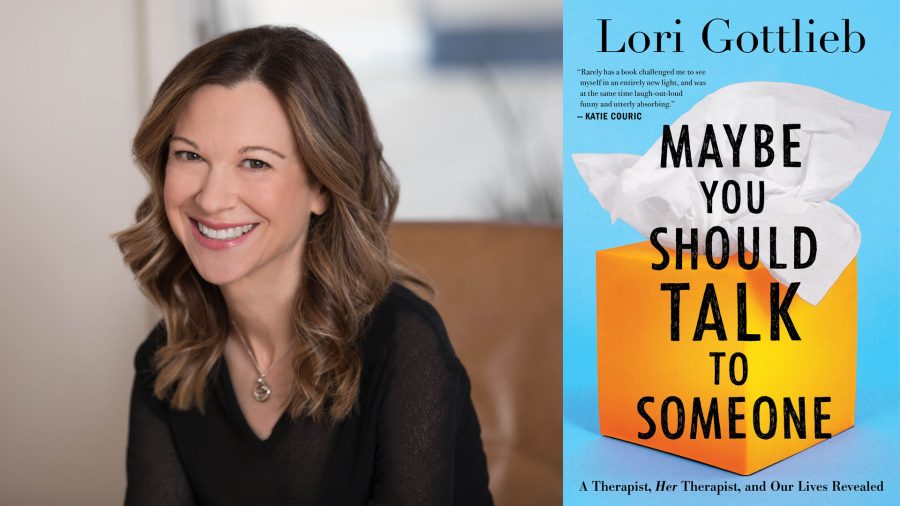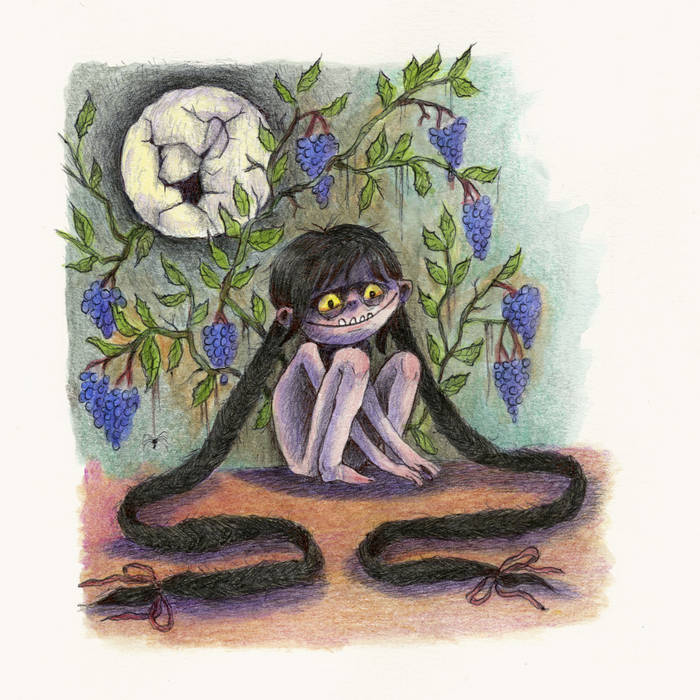Lori Gottlieb’s memoir is an ode to human connection painted humorously with stories from her and her patients’ lives. Its rather optimistic lens is contagious and stands as a pillar of hope, even if it stimulates minor issues of comparison.
Aided by prolonged isolation, there has been a tremendous amount of de-stigmatization around therapy and mental health as a whole over the past couple of years. Just as society seemed to be drifting towards prioritizing individualism, the pandemic proved just how vital human interaction and connection truly are. Lori Gottlieb released “Maybe You Should Talk to Someone” almost like an omen, and it became an instant New York Times bestseller less than a year before everyone was confined to their homes.
At the beginning of the novel, readers find Gottlieb at the top of her game. After many years of soul-searching through various careers, she eventually finds her calling as a therapist. With great friends, a son she loves more than anything, and a fiancée she adores, she believes her life is in the exact place she wants it to be. It’s a well-oiled machine functioning with the sole purpose of creating personal joy and satisfaction. However, when her fiancée calls off their marriage, the emotions she once had under control quickly begin to unravel, pushing her to find a therapist of her own. Gottlieb’s emotional dissection pulls at thoughts that she was not even entirely aware of, and the more she uncovers, the more she sees herself reflected back in her patients.
The four clients that Gottlieb deliberately picks to share with readers each have a wildly different personality as well as their own unique set of problems. Gottlieb has clear favorites, taking more chapters to share takeaways from those who have more jarring and emotionally intensive burdens to work through as opposed to the one who appears minor by comparison. This favoritism and selectively longer chapters can be attributed to her desire to bulk up her novel and give it emotional weight as, understandably, heavier conversations and sadder realities stick with readers for longer than those of normalcy. However, the issue with this decision is that if the goal of the novel is to encourage people to become more willing to unpack their emotional burdens, utilizing such intensive examples may dissuade readers from contributing their own internal conversations. It could potentially stimulate doubt for people who find themselves comparing their situations to these characters and thinking they need drastic events to seek therapy. Gottlieb does somewhat avoid this pitfall through talks with her own therapist, as she presents arguably the most mundane of problems in the novel and still finds emotional baggage she needs to work through. It is clear that the discussion revolving around these damaged characters is by no means exploitative, serving to showcase how even those in the bleakest of situations can find hope.
I will be the first to admit that this criticism stems from the fact that I find myself constantly comparing myself to others — especially when it comes to downplaying personal emotional knots. However, it is worth mentioning because so many of us play this comparison game in every aspect of our lives. Daily life is riddled with comparison, and there is a relatively high likelihood that others might come to the novel with this same lens.
Regardless, this does not take away from how much of an enjoyable read this novel truly is. It’s fast-paced and constantly punctures anecdotes with humor, yet knows exactly when to pull back for the sake of compassion. Gottlieb is unafraid to delve into incredibly heavy themes of love, loss, and emptiness, writing with the humanizing lens of a therapist; a lens with a slight fixation on the future. She explains that a therapist’s goal is to get to a place where their clients no longer need to come to them. There is always the desire for the client to reach a point of emotional stability. This emphasis on the future does not by any means rush the process of healing emotional wounds, but instead, consistently weaves the theme of hope. It’s easy to be blinded by emotions because — when in the thick of them — they often feel all-consuming. A therapist, however, helps pick at them until they are manageable and once-buried joy is unearthed.
Gottlieb makes it clear that she can never do the emotional heavy lifting for her patients, but, through conversation, she can help create the stepping stone towards the hope that will eventually lead them there. She crafts this process as an intensive one through blatantly honest observations — both humorous and not — highlighting how important people are to one another.
The heart of this novel does truly lie within its conversations. Many of the scenes open in the setting of a therapist’s office which seems to establish a consistent precedent: an encouragement for honest conversation. Gottlieb is brilliant in the way she handles vulnerability. It’s a privilege to watch the delicate process in which she shapes her words and the imprint of self-reflection that they leave in their wake. Her internal monologue feels wonderfully human; its transparency increases the trust audiences feel that they can place in her. Some of her most impactful observations are her most obvious, but it’s the exact type of obviousness that the mind and heart crave. There are just things we need to hear being said, or in this case read, to pull them to the forefront of our mindfulness. Conversation gives us these insights to absorb and — when placed into the setting of therapy — becomes the tool to reach what Gottlieb emphasizes as the most vital piece of life: human connection.
If there were only one reason to pick up this novel, it would be to serve as a reminder to cherish all human connections that exist within your sphere and anticipate all that will come. There is nothing more human than emotions and the desire to connect, and what better way to feel human is there than to talk to someone?
Grade: A-
Release Date: April 2, 2019
Image courtesy of Susan Cain
Book Review: “Maybe You Should Talk to Someone”
Apr 24, 2022
0
Tags:
About the Contributor

Jonathan Shlesinger, A&E Co-Editor
Jonathan is a fourth year psychology major and communications minor. He loves hiking, pickup spikeball, and can draw cows pretty well.
More to Discover









